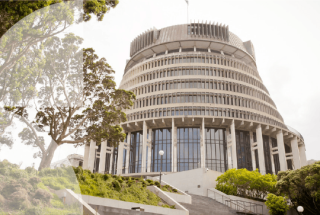Government establishes new Infrastructure Commission

Government establishes new Infrastructure Commission
Tuesday 9 April, 2019
The Minister for Infrastructure, Shane Jones, has announced the establishment of a new independent infrastructure body, the New Zealand Infrastructure Commission, ‘Te Waihanga’.
The Commission will be tasked with addressing New Zealand's "unprecedented infrastructure deficit". "This infrastructure deficit is manifesting in housing unaffordability, congestion, poor-quality drinking water and lost productivity." "That's simply not good enough," he said.
The Treasury has estimated the total infrastructure spend over the next five years would be $42 billion – more than double that of the past five years. The Minister said this showed why the establishment of the Infrastructure Commission was needed.
According to the Cabinet Paper to establish the Commission, the body will carry out two broad groups of functions: strategy and planning, and procurement and delivery support. It is intended that the Commission will help improve how New Zealand coordinates and plans infrastructure, make the most of the infrastructure already in place, and plan long-term to ensure investment delivers what is needed, where and when it is needed. Working with central and local government, the private sector and other stakeholders, the Commission will develop a 30-year infrastructure strategy.
The Commission will be set up as an Autonomous Crown entity with an independent board of between five and seven members with both public and private sector expertise. It is intended that the Commission will be advisory only, with funding and decision-making rights remaining with Ministers. The ability of the infrastructure body to achieve a step-change will be dependent on decision-makers acting on the Commission’s advice. Legislation establishing the Commission is expected to be introduced in April, and it is expected to be operational later this year.
The establishment of the Commission will be a welcome development to local authorities. As LGNZ President Dave Cull commented, “having a central agency to act as a ‘shop front’ that the private sector can interact with, and having an ability to buy goods and services in bulk will be of massive benefit for regional development projects”.
Te Waihanga means a cornerstone, or to make, create, develop, build, construct, generate.
Click here to view the Cabinet paper.





